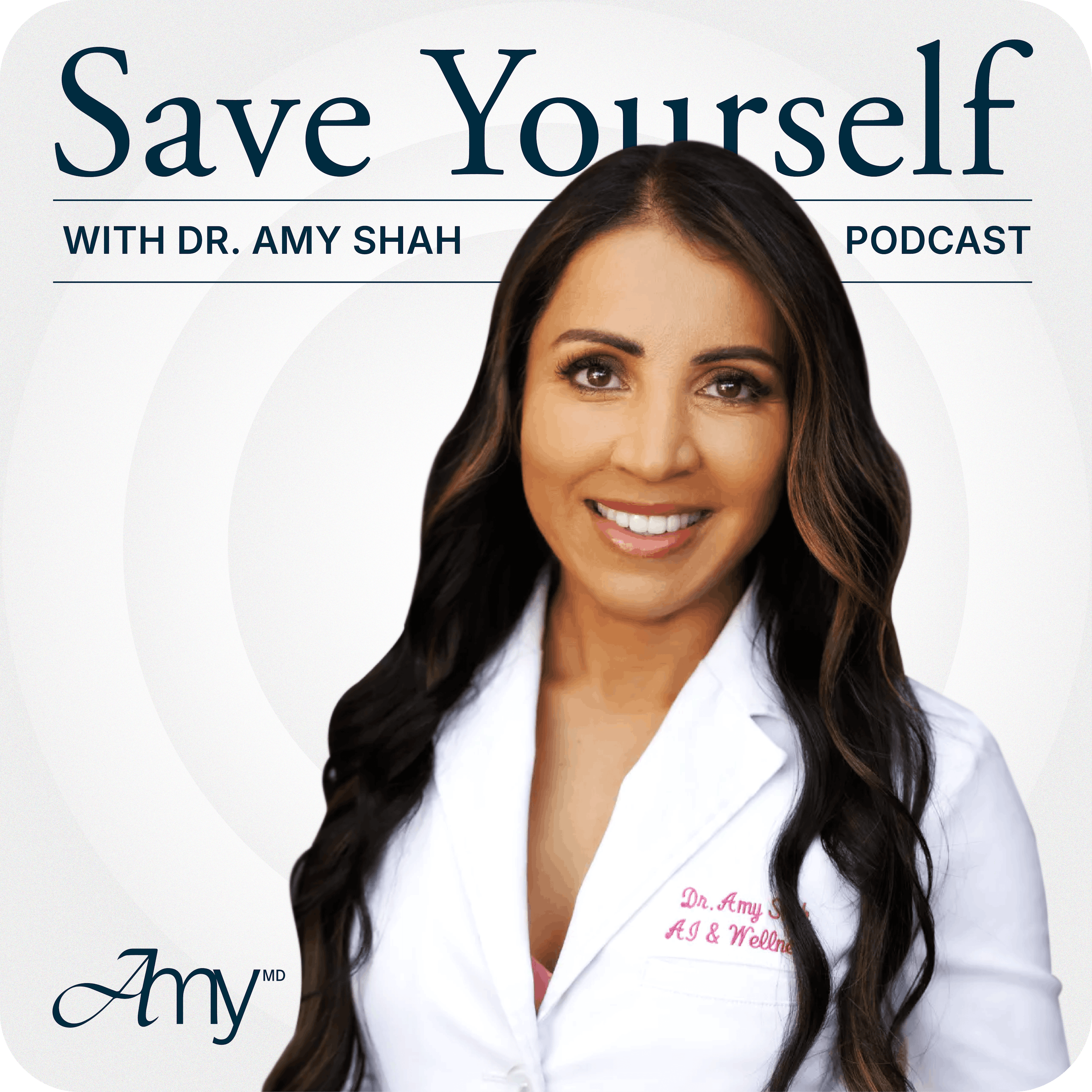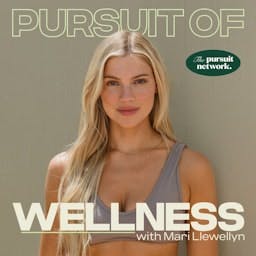.jpg)
Mindfully Integrative Show
Welcome to the Mindfully Integrative Podcast! We are dedicated to featuring inspirational and successful individuals who have embraced mindful investing to achieve optimal integrative wellness. Our podcast dives into all aspects of mindfully incorporating integrative functional health into our lives, aiming to help create a more balanced and fulfilling life. New episodes are released every Friday and cover a wide range of informative and entertaining topics, interviews, and discussions.
We explore a mindful approach to the mind-body connection with guests discussing various topics in integrative holistic health. This includes areas such as whole health, functional medicine, spiritual health, financial health, mental health, lifestyle health, mindset shifts, physical health, digital health, nutrition, gut health, sexual health, body positivity, family health, pet health, business health, and life purpose, among others.
Dr. Damaris G. is an Integrative Doctor of Nursing Practice, a Family Nurse Practitioner, a mom, and a veteran. For collaboration, interviews, or to say hi, you can contact her via email at damaris@mindfullyintegrative.com. You can also find her on LinkedIn at or https://www.linkedin.com/in/damarisdnp/. To join our membership and access resources, visit our website at https://mindfullyintegrative.com .
Please note that the information shared here is for informational and educational purposes only and should not be considered medical advice. Always consult with a physician or other licensed healthcare provider when making healthcare decisions. Enjoy the podcast!
Mindfully Integrative Show
The Sleep-Metabolism Connection You Can't Ignore
Sponsor Affiliates
Empowering Your Health
Get YOUR Own
Joburg Protein Snacks
Discount Code: Damaris15 Or Damaris18
Feeling need to Lose Weight & Become metabolically Healthy
GET METABOLIC COURSE GLP 1 REseT
This course is designed for individuals looking to optimize their metabolic health through integrative and functional medicine approaches. Whether you're on a GLP-1 medication or seeking natural ways to enhance your metabolic function, this course provides actionable steps, expert insights, and a personalized roadmap sustainable wellness.
Are you feeling stressed, tired, or Metabolism imbalanced?
Take advantage of our free mindful steps to help improve your well-being.
ENJOY ONE OF our Books
Mindful Ways Health Wealth & Life
https://stan.store/Mindfullyintegrative
Join Yearly membership ALL IN ONE FUNCTION HEALTH
Ask Us for help...
so we're talking about um sleep, the lack of sleep, and kind of the contributing factors to how it has to do with your metabolism. So the quality of sleep that you have, the amount of sleep that you have, whether it's poor or good, can actually mean a lot. Um hours of sleep. Sleep isn't necessarily a factor in the amount, is necessarily quality, but it is beneficial to do about seven to nine hours. So why does this affect your metabolism, metabolic health, and how does that lower your balance of the GLP-1 medications or GLP-1 boosting in the body? The reason this is is when you don't get enough sleep, your metabolism slows down, you don't efficiently burn calories, your body does not go into the rest digest, your liver does not want to metabolize, you're not conserving energy well and you're still feeling stressed and working, which leads to storing actually more calories and more fat. And when individuals say trying to not eat too late, you know there is reasons for that. Um, the sleep hormones. Um and your REM cycle is pretty paramount, paramount on and important on where your um hunger hormones lie. The ghrelin hormone is like the hunger hormone and leptin is what we counteract as being full. Um, glps help balance that the fullness, the hunger, the insulin and glucose are balanced out Instead of an excess, you end up having more of a balance, and when your sleep is off, you crave more sweets in the morning, you crave more sweets in the evening. Your insulin resistance increases and your GLP-1 secretion is decreased. Because then it is not doing its job about controlling your appetite, it is not doing its job about helping with balancing your blood sugar, and what happens is is that you become even more hungry. And what happens is is that you become even more hungry. You also have, when you have, an irregular sleep pattern. Your next day is also off. There has been shown that irregular sleep patterns and hormone imbalances show due to endocrine disruptors. Additionally, so when you have profound sleep problems, it affects the sleep. But there's also more growing evidence that when you affect the sleep, your hormones are dysregulated. There's insulin resistance, more eating, more glucose within the body, more hyperinsulemia, and then it involves a cascading then to affect the GLP-1 from secreting properly and potentially, potentially. Then there, you are not being able to regulate your body and wondering, oh, why is this a problem? And so the patterns of sleep and how you sleep is directly correlated, and the importance of it is just as important, as people don't even realize that. It is just as important as what you put into your body, how much sleep you're getting, and hydration is like just paramount.
Speaker 1:And then the environmental part of this, of your environment of sleep, or sleep hygiene. Do you have a dark room? What does that look like for you? Um, each person is totally different on that end. Um, you know sleep hygiene meaning what environment you do to get yourself into sleep. Um, that practice of getting back quieter, darker, um, because this will again disrupt your cycles, your eating patterns. I usually recommend dark room stop screen times about 30 minutes before bed, not as much of the blue lights, you know the screens. More on the darker tones you can black out shades, have like a cool environment, not super warm, but cool. Um, and less of the distractions on a daily basis. It's usually very, very helpful.
Speaker 1:And then on a daily basis, because then what it does is it helps you, um, get kind of prepared for that next day, so that when your next day you're having hunger and you may be feeling, oh my gosh, I'm not able to get through the day, then you end up having some coffee or high doses of caffeine, sugar to get that energy. So again, like I've said, just stick to a regular schedule as much as possible. Try not to nap. You can do a little bit of napping in the day, but not excess napping. Create a nice, relaxing bedroom environment. Limit the screen time. Comfortable bedding, cool environment. Try to find some quiet movements, breathing, meditating. You know music, breathing exercise, not recommendation to eat big meals three hours before bed. Limit the caffeine intake.
Speaker 1:Alcohol also will disrupt your sleep. And then there are exposure to environmental endocrine disruptors. They call it obstetogens or types of like toxins, exposure like the environment or products. So you know what you put in your body and what you expose yourself will have that direct effect. You know try to exercise as much as possible, expose yourself to natural light and, you know, be outside.
Speaker 1:You know try to even sleep during the. You know it starts to get more light dark out. You know think of that as nighttime it gets more light out. You can start waking up. You know it helps with your overall stress and anxiety and just gets you to. You know more of that optimal self so that you in turn can feel that your environment and can dictate your cortisol levels and can dictate how you feel and if you have any additional questions, I will be glad to elaborate on this. It's so important. Sleep is so paramount. You know whatever that is for you maybe even putting a black mask on, but listening to something soft and soothing and you know, getting yourself nice and cozy, whatever that you can do for yourself to get yourself back into a good sleep pattern. Talk with you soon and have a great day.
Podcasts we love
Check out these other fine podcasts recommended by us, not an algorithm.

The Dr. Hyman Show
Dr. Mark Hyman
Functional Fertility with Dr. Kalea Wattles
Kalea Wattles
On Health for Women
Aviva Romm
Save Yourself With Dr. Amy Shah
Dr. Amy Shah
Huberman Lab
Scicomm Media
The Peter Attia Drive
Peter Attia, MD
The Metabolic Classroom with Dr. Ben Bikman
Insulin IQ
FoundMyFitness
Rhonda Patrick, Ph.D.
Change Your Brain Every Day
Dr Daniel & Tana Amen
The Dr. Josh Axe Show
Dr. Josh Axe
Pursuit of Wellness
Mari Llewellyn & Pursuit Network
Feel Better, Live More with Dr Rangan Chatterjee
Dr Rangan Chatterjee: GP & Author
The Level Up Podcast w/ Paul Alex
Paul Alex Espinoza
Faith Over Fear
Jennifer Slattery, Faith Over Fear Author and Speaker
